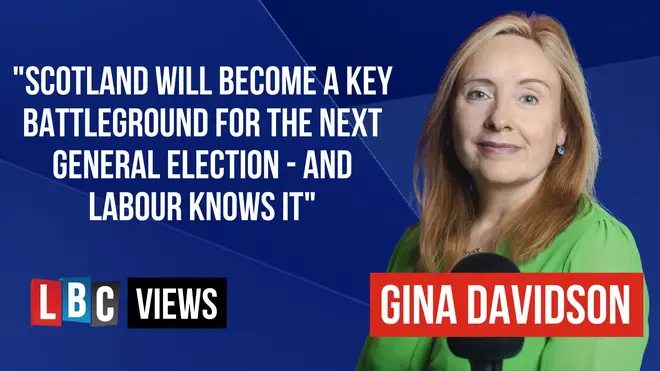
Paul Brand 10am - 12pm
6 May 2023, 17:47 | Updated: 6 May 2023, 18:31

This is just the third year in almost a decade that there have been no elections in Scotland.
Since the independence referendum of 2014 there has been an election of sorts every year, 2018 and 2020 aside, with Scots going to the polls for Westminster, Holyrood and council elections - not forgetting the Brexit vote.
So we have watched England go to vote with a certain relief, while at the same time knowing the results could ultimately have a long term impact on Scotland’s future.
For what happened on Friday will ultimately effect the way Scotland votes in the next General Election.
Undoubtedly, Labour had a good election, the Conservatives did not. Similarly the Liberal Democrats have seen their vote share improve, and the Green Party too (not the same Greens as in Scotland) has also had a real boost.
Yet to extrapolate from this that Labour will sweep to power and Keir Starmer will stride easily into No10 at the next Westminster election would be to over egg the political pudding.
Analysis suggests that despite the Tory losses and the Labour gains in councils across England, the general swing would still leave Starmer 28 MPs short of a majority. And that brings Scotland very much into play.
Labour has known for some time that Scotland will be a key battleground in the forthcoming campaign. It’s not for nothing that Starmer has headed north on a number of occasions in recent months.
Right now, polls say Labour is the party looked upon most favourably by Scots - and while his own ratings at +2, have slid six points, he’s still streets ahead of Rishi Sunak, and at the moment, the new SNP First Minister Humza Yousaf too.
It could be, as Scottish Labour leader Anas Sarwar believes, Scots are ready to look beyond the constitutional issue and are more concerned with ensuring the Conservatives lose at the next General Election than anything else.
Certainly the poll trends have seen Labour close the gap with the SNP to just three percentage points, with suggestions that Labour could win around 20 MPs. It would be a sea change in Scottish politics, and those numbers - as well as those picked up in Wales - could well see Labour get over the line with a majority.
Now it could be that the majority of Scots will want that outcome. That they are fed up with constant constitutional battles and just want a government that will sort out the cost of living crisis.
The SNP’s current internal woes, and the problems yet to be resolved by Yousaf at government level, could be enough to turn them off. Labour, they might think, should once again be given a chance.
But… if previous SNP voters, currently being swayed towards Labour, believe that a hung parliament with a minority Labour government is a potential outcome - and this will be exactly the picture the SNP paints - they could well just stick with Yousaf’s party.
Not winning seats in Scotland would ensure that Labour doesn’t have a majority, and that could give the SNP the whip hand.
Yousaf has already said that for SNP support of a minority Labour government there would be a demand for a second independence referendum.
For Scots who want that above all else, it would be a no brainer to stick with the SNP. Similarly, despite the Tories’ terrible results on Friday, in Scotland the threat that a minority Labour government could result in a second independence referendum could well see Tory voters, potentially flirting with Labour when talking to pollsters, instead stick to their guns and vote for Sunak’s party.
The wild card is what happens to the Lib Dem vote. Success in council elections does not equate to success at a national election, but if there is a hung parliament, and they have regained third place in Westminster from the SNP, then it could be to Ed Davey that Starmer will turn.
A General Election could still be 18 months away but a by-election in Margaret Ferrier’s Rutherglen seat is likely before then. That result will shed more light on where Scots believe they are best placed to put their Xs.
So many ifs, buts and maybes at this stage, and much can change between now and the General Election, but don’t be surprised to see Starmer and many other Labour frontbenchers in Scotland on a regular basis.
Nothing can be taken for granted, and the constitution will, as ever, continue to play a huge part in the politics of Scotland - and the UK.